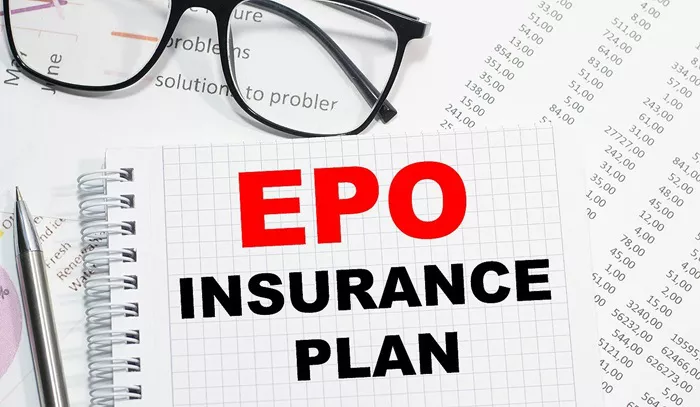Exclusive Provider Organization (EPO) dental insurance is a type of dental plan that requires members to receive care exclusively from a network of participating dentists. These dentists agree to accept reduced, negotiated fees for services provided to EPO members. This model is similar to Preferred Provider Organization (PPO) plans but with a key difference: EPO plans do not cover any out-of-network dental care except in emergencies. This means if you visit a dentist outside the EPO network, you will be responsible for the full cost of treatment.
EPO dental insurance is designed to offer lower premium costs compared to PPO plans by limiting the choice of dentists to those within the network. This plan is ideal for individuals who want to save money and are comfortable receiving dental care only from network providers. Preventive care such as routine exams, cleanings, and X-rays is usually covered at 100% when performed by an in-network dentist. For other treatments, members pay a portion of the cost, while the insurance covers the rest up to an annual maximum.
EPO Dental Insurance Plan Types
EPO dental plans generally come in a few variations depending on the insurer, but they share common features:
Preventive Care Plans: These cover routine dental services like cleanings, exams, and X-rays at no cost to the member when using in-network dentists. This helps prevent gum inflammation and gum disease by encouraging regular checkups.
Basic and Major Treatment Plans: These cover restorative treatments such as fillings, root canals, and oral surgery (e.g., implants). Coverage percentages vary; for example, fillings may be covered at 80%, meaning you pay 20%, while oral surgery may be covered at 50%.
Emergency Care Coverage: While EPO plans do not cover out-of-network care generally, they often provide limited coverage for emergency palliative treatment to relieve pain temporarily.
Some EPO plans require members to pay a deductible before coverage kicks in for basic and major services, but preventive care is typically exempt from deductibles.
EPO Dental Insurance Advantages
Lower Premiums: EPO plans usually have lower monthly premiums than PPO plans because they restrict coverage to a specific network of dentists who agree to reduced fees.
Significant Network Discounts: Dentists in the EPO network accept negotiated fees, which means members benefit from substantial discounts on dental procedures.
No Balance Billing: Members are protected from balance billing, where dentists charge the difference between their fee and what insurance pays, as network dentists accept the negotiated rate as full payment.
Direct Access to Specialists: Unlike some HMO plans, EPO members can often see specialists within the network without needing a referral, making it easier to get treatment for complex dental issues like gum disease.
Comprehensive Preventive Care: Routine dental services are covered at 100%, encouraging members to maintain oral health and prevent conditions such as gum inflammation and periodontal disease.
EPO Dental Insurance Coverage
EPO dental plans cover a range of dental services, primarily when provided by in-network dentists:
Preventive Services: Exams, cleanings, fluoride treatments, and X-rays are typically covered fully to help maintain oral health and prevent gum disease.
Basic Restorative Services: Fillings, simple extractions, and treatment for minor gum inflammation are partially covered, usually around 80%.
Major Services: Crowns, bridges, implants, and oral surgery may be covered at a lower percentage, often around 50%, reflecting their higher cost.
Emergency Care: Emergency treatment to relieve pain is covered even if performed by an out-of-network provider, but this is usually limited to temporary care.
Coverage limits include annual maximums, which cap the total amount the insurance will pay in a year. Once this limit is reached, the member pays 100% of additional costs.
EPO Dental Insurance Related Costs
Premiums: Monthly payments for EPO plans are generally lower than PPO plans due to the network restrictions.
Deductibles: Members may need to pay a deductible before coverage begins on basic and major treatments. Preventive care usually does not require meeting the deductible first.
Co-insurance: This is the percentage of the cost members pay after the deductible. For example, a filling might require a 20% co-insurance payment, while an implant might require 50%.
Out-of-Network Costs: If a member chooses to see a dentist outside the EPO network (except in emergencies), they are responsible for the full cost of treatment with no reimbursement.
Annual Maximums: EPO plans have a yearly cap on coverage, typically ranging from $1,000 to $2,000. After reaching this limit, members pay all dental costs out-of-pocket.
EPO Dental Insurance Advantages and Disadvantages
| Advantages | Disadvantages |
| Lower premiums than PPO plans | No coverage for out-of-network dentists except emergencies |
| Significant discounts on dental procedures | Limited dentist choice due to network restrictions |
| Preventive care covered 100% | Annual maximum limits total coverage |
| No balance billing from network dentists | May require paying deductible before coverage |
| Direct access to specialists without referrals | Out-of-network emergency coverage may be limited |
EPO dental insurance is a cost-effective option for those who do not need the flexibility to see any dentist. However, the limitation to network providers means you must ensure your preferred dentist participates in the EPO network. This restriction can be challenging if you have specific dental needs, such as treatment for gum disease or advanced oral surgery, and your current dentist is not in-network.
Conclusion
In summary, EPO dental insurance offers a structured and affordable way to maintain dental health with coverage focused on in-network providers. It supports preventive care to avoid issues like gum inflammation and gum disease while providing partial coverage for restorative and major dental treatments. Understanding the plan’s network restrictions, costs, and coverage limits is essential to making the most of an EPO dental plan.

